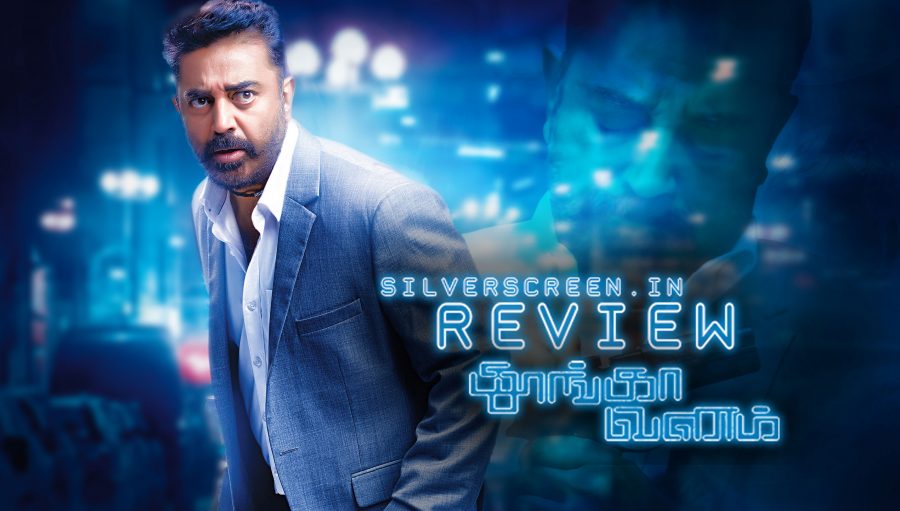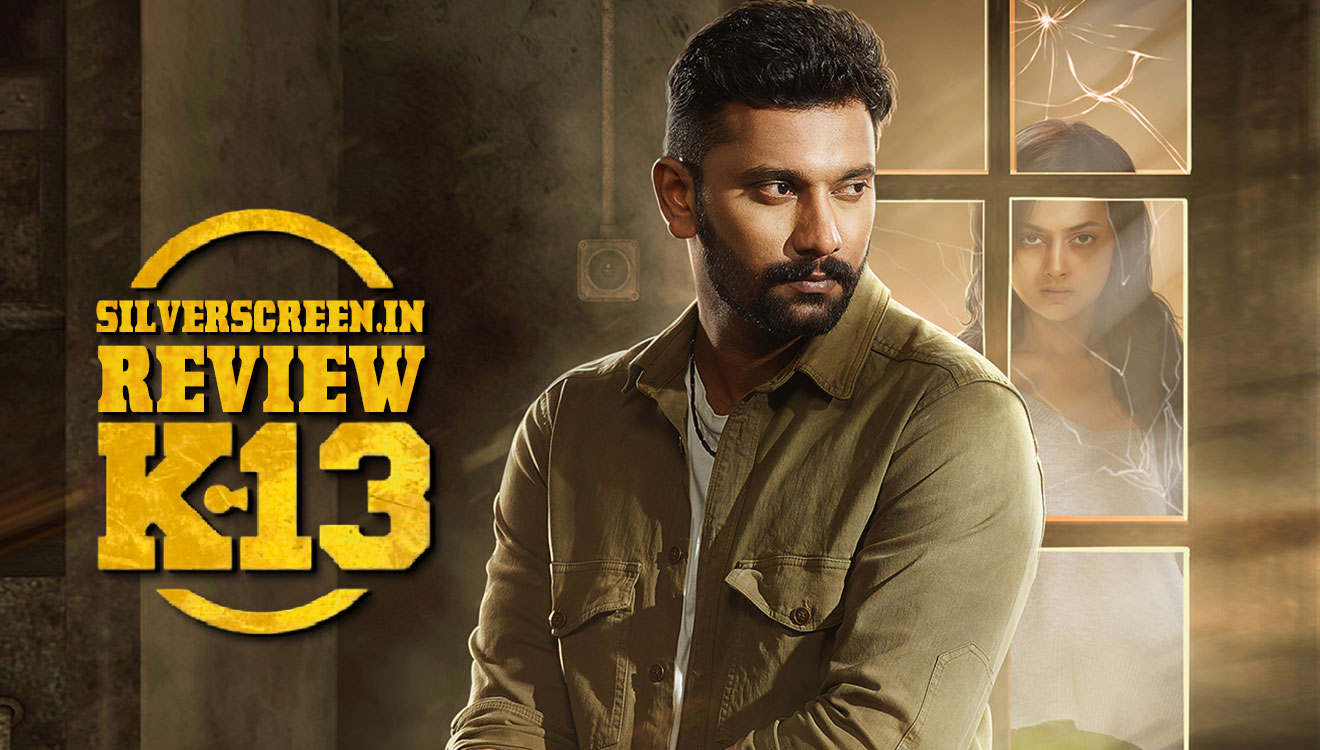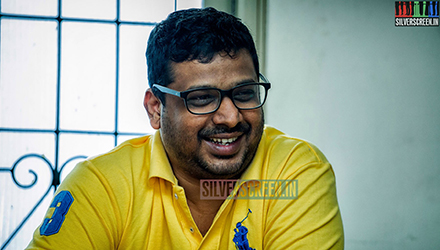A car lies in wait by a bridge, as the day waits to break. Voices are heard over the strains of Chandrababu’s Sirippu Varudhu. Titles roll. They are still rolling as the sun rises, but the car stays put. And then, from the dusty Chennai morning haze, another car appears.
The voices grow more animated and the two hooded men in the waiting car pursue the other one. The cars collide. A shootout. The two men peel off their hoods to reveal CK Diwakar (Kamal Haasan) and his accomplice Mani (Yugi Sethu). They retrieve a bag, indulge in some fatal shooting and Diwakar gets stabbed.
This is just ten minutes in. Thoongavanam is never found wanting for pace. No sir, it is not. Soon, we are wincing as CKD’s – as Diwakar is known – passive-aggressive ex-wife tells him what a failure he has been as a dad. Drinks at the dining table, spray-washes omelettes that he dropped on the floor. And his son, Vasu, is irked by his dad’s indifference but loves him nevertheless.
The old routine. Protective but indifferent dad and loving but irritated son. It is the only relationship the restless plot finds time to pause for; the emotional anchor for the rest of the plot. Because soon, the son goes missing, held in a nightclub by a local druglord, Vittal Rao (Prakash Raj). And the action shifts to the nightclub, never to leave it again till the very end. It is here that Diwakar fights off an array of cops and drug peddlers and a worsening knife wound to try and get his son back.
*****
Mallika (Trisha Krishnan) and Dhiraviyam (Kishore) are the cops on CKD’s trail, with Mallika seemingly the only one in the entire theater not in on the twists and turns. Trisha wears an expression of justifiable bewilderment throughout; and retains the puzzled look even after getting beaten up by CKD. Both of the excellent stunt sequences are brutally violent – just as director Rajesh M Selva told us they would be in his interview.
“Kamal sir always says that violence has to look real on screen. Real enough that people watching it should be scared to do it in real life. And that is what we have tried to do in Thoongaavanam.”[Rajesh M Selva Interview]
The gritty role – no makeup, and a growing number of bruises on her face as the film progresses – is a departure from the usual for Trisha; her willingness to experiment with roles is long overdue, but welcome.
*****
Kamal Haasan once again plays a dad on a mission, but this is no layered Papanasam. He looks no less invested though. Always on the move and forced to think on his feet repeatedly CKD is battling demons both emotional and physical. A son needs to be rescued and his worsening stab wound is not helping.
The movie unfolds in Vittal Rao’s nightclub – and the screenplay (by Kamal Haasan) counters the challenge of a monotonous backdrop by having CKD wander through every room in the building as he looks for his son. Key sequences are planned in the toilets; the camera is often overhead chronicling the events. Including this one time where it manages to capture what normally happens after a toilet has been used. As Forrest would say, shit happens sometimes.
Diwakar loses people on his trail by wading through tightly packed bodies on the dance floor. Fights are set in the kitchen. Tense verbal confrontations are in the boss’ pit. Even the parking lot is not spared. This location tour is fun the first time, but it wears you out as the movie stalls. A sense of deja-vu sets in as you realize you’re on a merry-go-around seeing the same sights and CKD’s worsening knife wound becomes a metaphor for your patience.
More scenery on this merry-go-around is provided by nurse Madhu Shalini – damsel in distress rescued by the knight in distress – who bows in and out of frames. When she is in, she is mostly lip-locked with Kamal Haasan as he goes through his numerous facility tours.
And meanwhile, rather incongruously for a thriller, there is a lot of humour thrown in. A drunk producer who rants about his preachy lead actor (nudge, nudge); a comedian playing the villain’s sidekick, wisecracking at the end of every serious verbal exchange. A wacky henchman and the kitchen staff have some great one-liners. The audience did laugh, but is that what you would want in an edge of the seat thriller?
Recommended
Throughout the movie, the writing establishes a frenetic, hurried pace on the surface. Things keep happening. The bag is hidden in the vent above the toilet. It’s retrieved, then hidden again. And then one more time. A lot of phone calls are made, mostly to CKD. Vittal Rao, Asha Sarath and Vasu all call him. But the pace at which things happen is deceptive. Because they do precious little to move the plot along. The lack of songs actually contributes to the slow progress of the plot, with the director being forced to fill in an extra 30 minutes with something or the other. (Thoongaavanam is 128 minutes long vs 108 for the French movie, Nuit Blanche, on which it is based).
*****
The Thoongavanam review (aka the Thoongaavanam Review) is a Silverscreen original article. It was not paid for or commissioned by anyone associated with the movie. Silverscreen.in and its writers do not have any commercial relationship with movies that are reviewed on the site.



